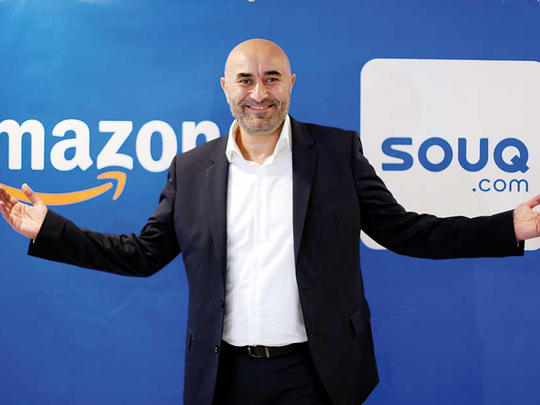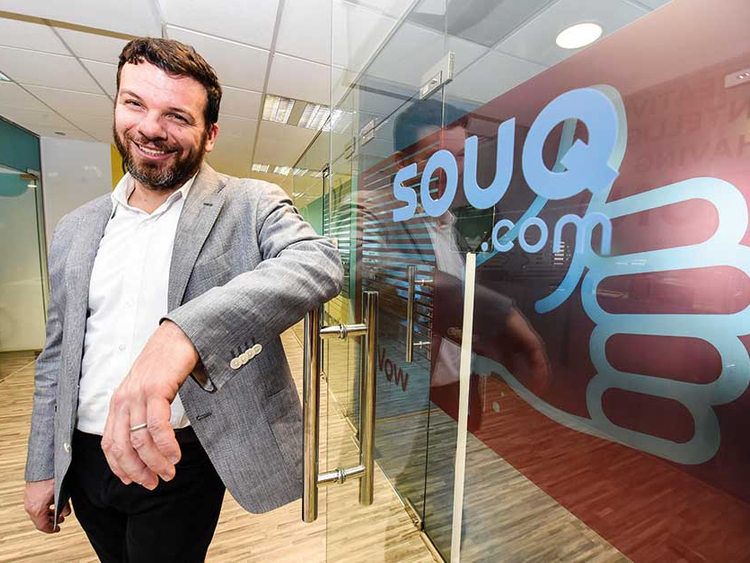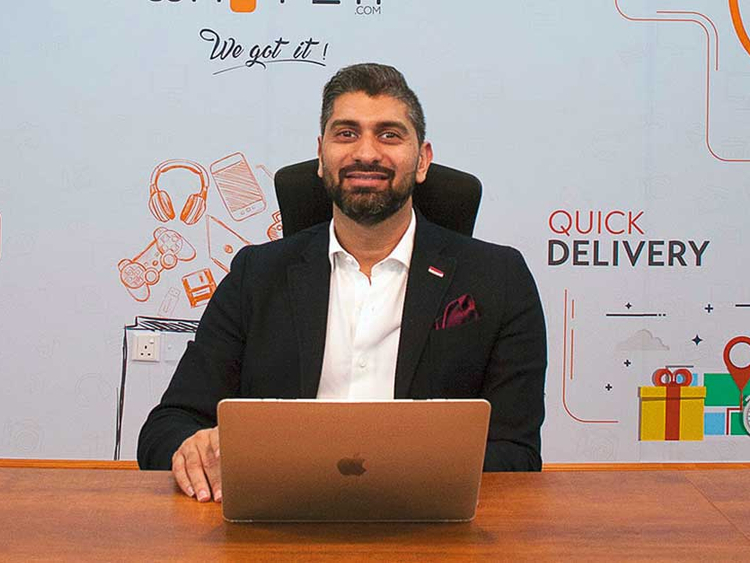
DUBAI: The battle for the Middle East’s online marketplace has just begun. Between Amazon and the soon-to-launch Noon.com, just about every product category — and brand — known to man has a chance to be shipped to regional markets and its eager shoppers. But they needn’t be the only players in the frame.
That is where highly defined consumer niches come in. The UAE online marketplace already has multiple online vendors who have, — or are trying to — carve out their specialised virtual territories that can take on the big names.
There is Ounass.com with its razor focus on offering premium/luxury brands, both with high visibility and those currently en route to getting here. The portal experience shows a high degree of curating which is backed up by the promise of a two-day delivery. That, according to market sources, can be a compelling argument when it comes to winning over consumers.
Another premium-facing online vendor is also taking shape, with Yoox Net-a-Porter in association with Symphony Ventures, promoted by Mohammad Alabbar of Emaar.
There is Wadi.com, which has made quite a bit of headway in Saudi Arabia and the UAE, and which has been boosted by an infusion of funds that included the likes of Rocket Internet.
The promoters of thedubaibazaar.com are steadfast in going after value-for-money focused buyers, with the predominant part of its merchandise carrying price tags of well under Dh100.
“The eCommerce revolution is just getting started in the region … Amazon’s deal for Souq.com is a testament to the size and scale that could be possible,” said Ali Haji, who heads the online retail operations at the GCP Group, which owns thedubaibazaar.com. “We believe there are opportunities for existing players to flourish as they step up to the challenge.
“That’s part of capitalising on the “long tail phenomenon” in the online selling space. We have seen it elsewhere, where even small niche operators can develop and even thrive in the paths cleared by the likes of Amazon.”
One thing is clear — no online vendor can hope to remain in contention with a “me-too” kind of offering. Noon.com will have a stock offering of 20 million products, Amazon’s clout opens up potentially 30 million products to regional shoppers. (As such, many of them would have already bought from Amazon “stores” in the UK and US and had the orders shipped in. But a local presence cuts down delivery times to mere days as opposed to a week or two. And for Noon.com, there is its strategic association with Aramex, the logistics heavyweight. For the region’s shoppers, it is their chance to be wooed with the same intensity they receive in the brick-and-mortar space. Deals will get sweeter, and the customer experience — in terms of 24X7 support, instant callbacks, more flexible returns policy, etc — will rise a few notches.
And there is the trust factor. “The entry of big players will further cement the trust factor, bringing forth their reputation of product and service delivery from international markets to the region,” said Saad Khan, CEO of Whoopey.com, which plans to add new product categories and offers end-to-end digital support for its partner brands. “This can drive online sales dramatically and building long-term brand loyalty for purchases.
“From a strategic point-of view, as Amazon, Emaar and Germany’s Rocket Enterprises tap into the growth of the Middle Eastern online market, there will be improved processes across sectors such as logistics, warehousing and digital payments.”
What will the region’s existing brick-and-mortar retailers do? Will they go the full distance with online presences of their own, such as what the Landmark Group did with its stand-alone portals for some of its key brands such as Splash, Centrepoint and Babyshop? It earlier had one generic landmarkshops.com window. The Apparel Group has its own platform, in the 6thstreet.com. But, by and large, most of the big retail groups have a limited online presence, instead preferring to sell through third-party sites.
With Amazon and Noon.com around, chances are a majority of regional retailers will prefer to sell through these marketplaces rather than go through the whole cost of setting up online on their own, and including stocking and logistics. Keep in mind, the online retailing experience has only gained a certain degree of traction in the UAE and Saudi Arabia, and Egypt to an extent. For the rest of the markets, there is a whole lot of catching up to do.
“I don’t see why at this stage we should be focusing a lot of energy in going after new markets … there’s a lot to do in those we are already in,” said Ronaldo Mouchawar, co-founder and CEO of Souq.com. “With Amazon, it speeds up the process of bringing in new technology, more products and improve delivery times.”
And amidst the excitement of such a mega deal and with Noon.com’s impending arrival, can there be another big deal in the region’s online space? (In India, for instance, it could soon be a straight fight between Flipkart and Amazon, with speculation that Snapdeal might be acquired by the former.)
“It appears as if there is enough appetite for this to happen, especially in alternate platforms like online auctions and for portals targeted at different demographic and income segments,” said Haji. “Consolidation is inevitable as companies merge to acquire economies of scale.”













